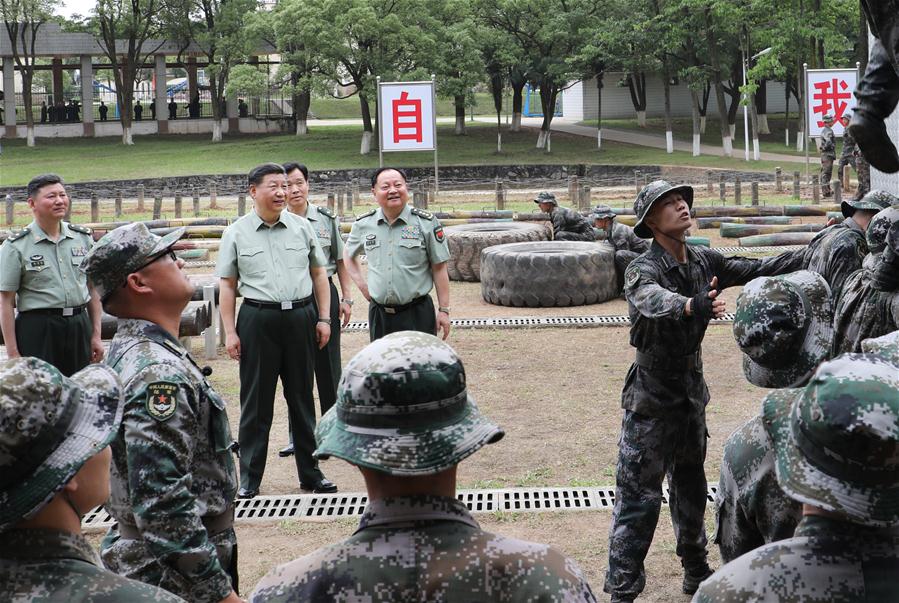
By Liu Qiang
China's rapid economic growth and strategic adaptation to the changing security situation have helped the People's Liberation Army to modernize and upgrade its armament and equipment. The PLA has also made remarkable progress in practical training and participated in various military cooperation missions such as international peacekeeping, anti-terrorism, and escort and humanitarian aid operations.
Shouldering its international responsibilities, China has built its military into not only a large traditional security power but also a large international peacekeeping force. The more the Chinese military develops the more contributions it will make to global security.
To begin with, proper strategic adjustment ensured the peaceful development of the PLA, and thus it remains committed to maintaining peace. China has always followed the principle of active national defense despite the significant changes in its military strategy in the past 70 years. China's defense strategy changed from preparing to defend against sudden attacks in the 1950s to a nuclear attack in the 1960s to preventing enemy invasions in the 1970s and preparing for a possible war with conventional weapons in the 1980s and high-tech equipment in the 1990s. In the 21st century, China has been preparing to deal with an information technology-induced war.
After its founding in 1949, the People's Republic of China has tried its best not to engage in a war with another country. A noninvasive Chinese military, the largest in the world, has had a positive influence on global security. Therefore, any accusations that the Chinese military is a "threat" to other countries are groundless.
The qualitative improvement of the PLA has enabled it to participate in global security operations. Despite the West's restrictions on the export of high-tech to China, the PLA has managed to upgrade its strategic and conventional weapons, and gradually narrowed the gap with the militaries of advanced countries.
The PLA is one of the top three military powers today. It has made incredible achievements, especially in the past decade. For example, the PLA's architecture has been strengthened, its firepower improved, and navy vessels, including aircraft carriers and submarines, and new generation combat aircraft have increased.
No wonder even after the reduction of troops, the PLA retains its capability to conduct overseas operations to not only defend national interests but also help with global peacekeeping.
Thanks to its focus on combat capability, the Chinese military has performed excellently in military missions. And because of China's rapid economic development and the new leadership's deep understanding of professional military development, wrongdoings within the military including corruption have been curbed.
China's focus on practical combat capability and combat training has greatly enhanced the PLA's preparedness and helped it to better fulfill its international duties. And with self-improvement and the deepening of global military cooperation, the PLA has become more aware and capable of maintaining global security.
China's increasing involvement in global military operations has widened its vision and prompted it to expand its military functions. Since China is committed to further opening up its economy and helping build a community with a shared future for humankind, the PLA will have to take up more responsibilities and participate in new missions apart from safeguarding national security.
The Chinese military has actively participated in global governance through multilateral security mechanisms. For instance, the PLA's role in UN peacekeeping operations has expanded, because it also provides escort services for vessels to protect them from pirate attacks, takes part in international rescue operations, and offers overseas medical services through Peace Ark.
China has boosted the world's peacekeeping power, and will continue to make more contributions to global security and peace, by strategically adjusting and continually improving its military establishment.
The author is deputy director of the Institute of Strategy and Security, National University of Defense Technology.
The views don't necessarily represent those of China Daily.









